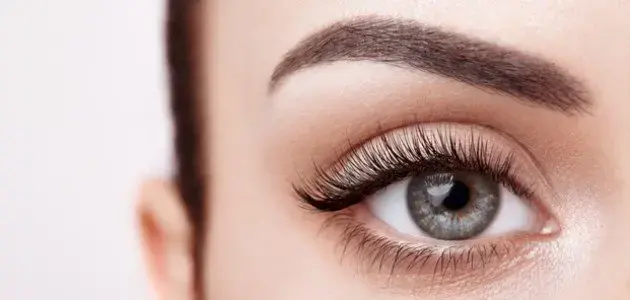Several key vitamins play a crucial role in maintaining healthy eyes. Here are some of the most important ones:
Vitamin A
Vitamin A is vital for clear vision and overall eye health. A deficiency in this vitamin can lead to night blindness and reduce the eye's ability to produce moisture. Vitamin A is a component of the protein rhodopsin, which helps the eyes adjust to low light, and it supports the function of the cornea, the eye’s protective outer layer.
Rich dietary sources of vitamin A include:
- Carrots
- Red bell peppers
- Tuna
- Spinach
- Pumpkin
- Sweet potatoes
- Cantaloupe
- Lettuce
- Broccoli
- Grapefruit
Vitamin C
Vitamin C acts as a powerful antioxidant, protecting the eyes from damage caused by free radicals. It also plays a key role in collagen production, a protein essential for the structure of the sclera (white of the eye) and the cornea. Studies show that a diet rich in vitamin C may reduce the risk of cataracts by up to 80%.
Common sources of vitamin C include:
- Red, green, and yellow bell peppers
- Oranges and lemons
- Black raisins
- Kiwifruit
- Berries
- Tomatoes
- Broccoli
- Cabbage
Vitamin E
Vitamin E is another strong antioxidant that protects eye cells from free radical damage. The most effective form, alpha-tocopherol, helps prevent cataracts. Natural sources of vitamin E include:
- Peanuts
- Vegetable oils like olive and canola oil
- Almonds and other nuts
- Plant-based margarine
- Leafy green vegetables
- Fortified grains
- Dairy products
- Meat
B-Complex Vitamins
The B vitamins, especially B6, B9 (folate), and B12, help reduce levels of homocysteine, a protein linked to increased risk of age-related macular degeneration (AMD). Vitamin B2 acts as an antioxidant, protecting the eyes from free radical damage and lowering cataract risk. Vitamin B3 may help prevent glaucoma.
Key food sources of B vitamins include:
| Vitamin | Food Sources |
|---|---|
| B6 | Grains, legumes, fruits, green leafy vegetables, nuts, fish, shellfish, meat, poultry, liver |
| B9 (Folate) | Dark leafy greens, eggs, beef liver, nuts, avocado, papaya, orange juice, beans |
| B12 | Beef liver, milk, yogurt, beef, shellfish, salmon |
| B3 | Meat, fish, poultry, eggs, milk, whole grains, whole wheat bread, nuts, mushrooms |
| B2 | Milk and dairy, meat, whole grains, whole grain bread, egg whites, green leafy vegetables, yeast, kidney meat, liver |
Other Beneficial Nutrients for Eye Health
Zinc
Zinc has antioxidant properties that protect the eye from free radical damage and aids in vitamin A absorption. This helps guard against age-related macular degeneration and night blindness. However, excessive zinc intake can suppress immune function, so it should be consumed within recommended limits.
Zinc-rich foods include:
- Legumes
- Meat
- Poultry
- Mushrooms
- Kale
- Shellfish
- Seeds and nuts
- Whole grains
- Dairy products
- Dark chocolate
Carotenoids
The carotenoids lutein and zeaxanthin are natural pigments found in many vegetables and plants. They protect the eyes from harmful ultraviolet light and other high-energy waves, helping to delay age-related eye diseases. These compounds are abundant in spinach, kale, and collard greens.
Higher levels of lutein and zeaxanthin in eye tissues improve vision, especially in bright or low-light conditions.
Should You Take Supplements?
Supplements are meant to complement—not replace—a healthy diet. To maximize benefits for eye health, it's important to maintain a balanced diet rich in the vitamins and nutrients mentioned above. Those with health conditions, on medications, or who are pregnant or breastfeeding should consult a healthcare professional before starting supplements.
Doctors may recommend supplements for individuals with nutritional deficiencies or those whose diets lack essential vitamins for eye health.
Summary
Maintaining eye health relies on key vitamins such as A, C, E, and the B-complex group, alongside important nutrients like lutein, zeaxanthin, and zinc. These can be obtained from a variety of foods and, when necessary, supplemented under medical guidance. Proper intake supports vision, protects against age-related diseases, and promotes overall eye function.
Leave a comment
Your email address will not be published. Required fields are marked *




